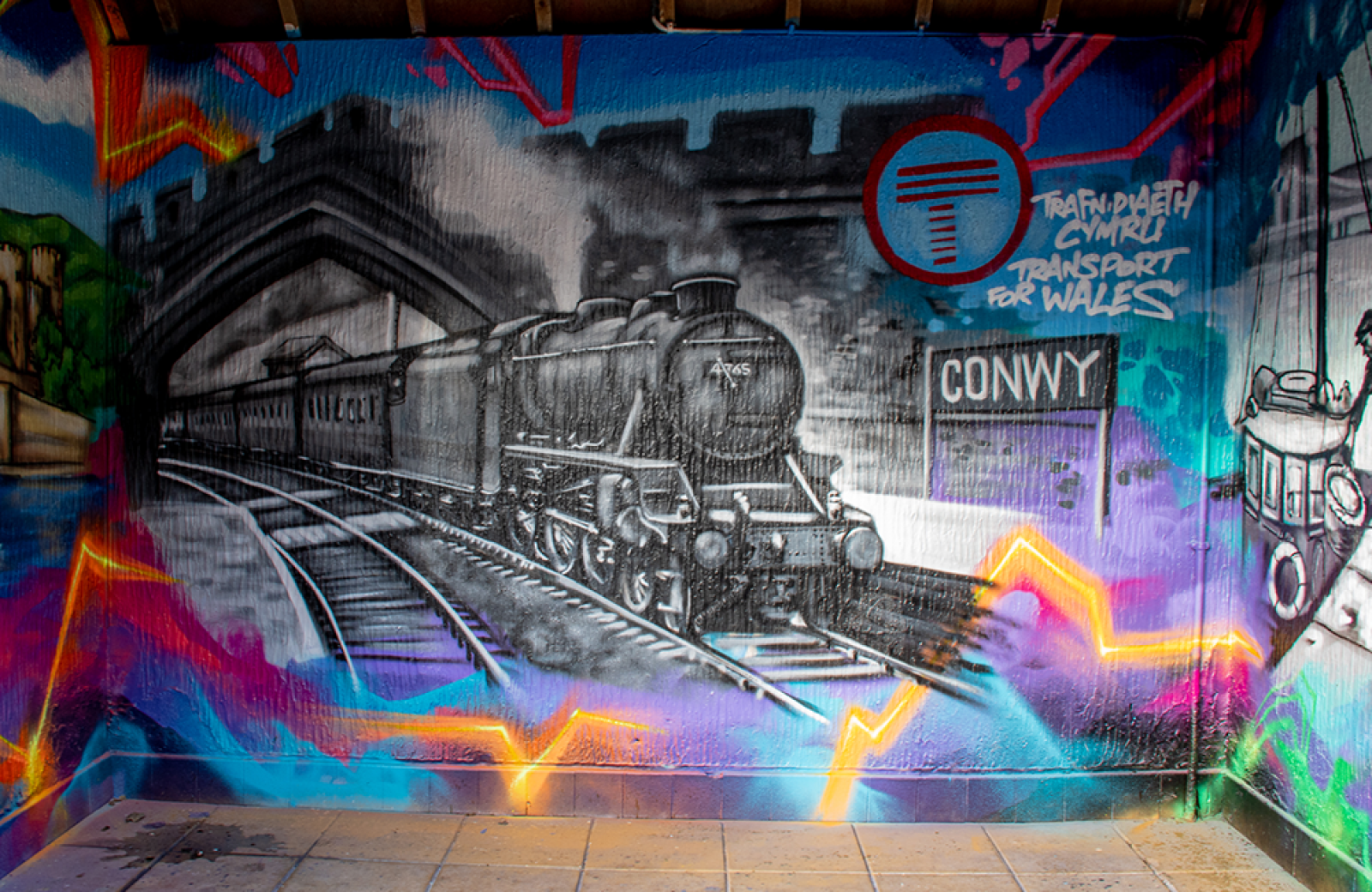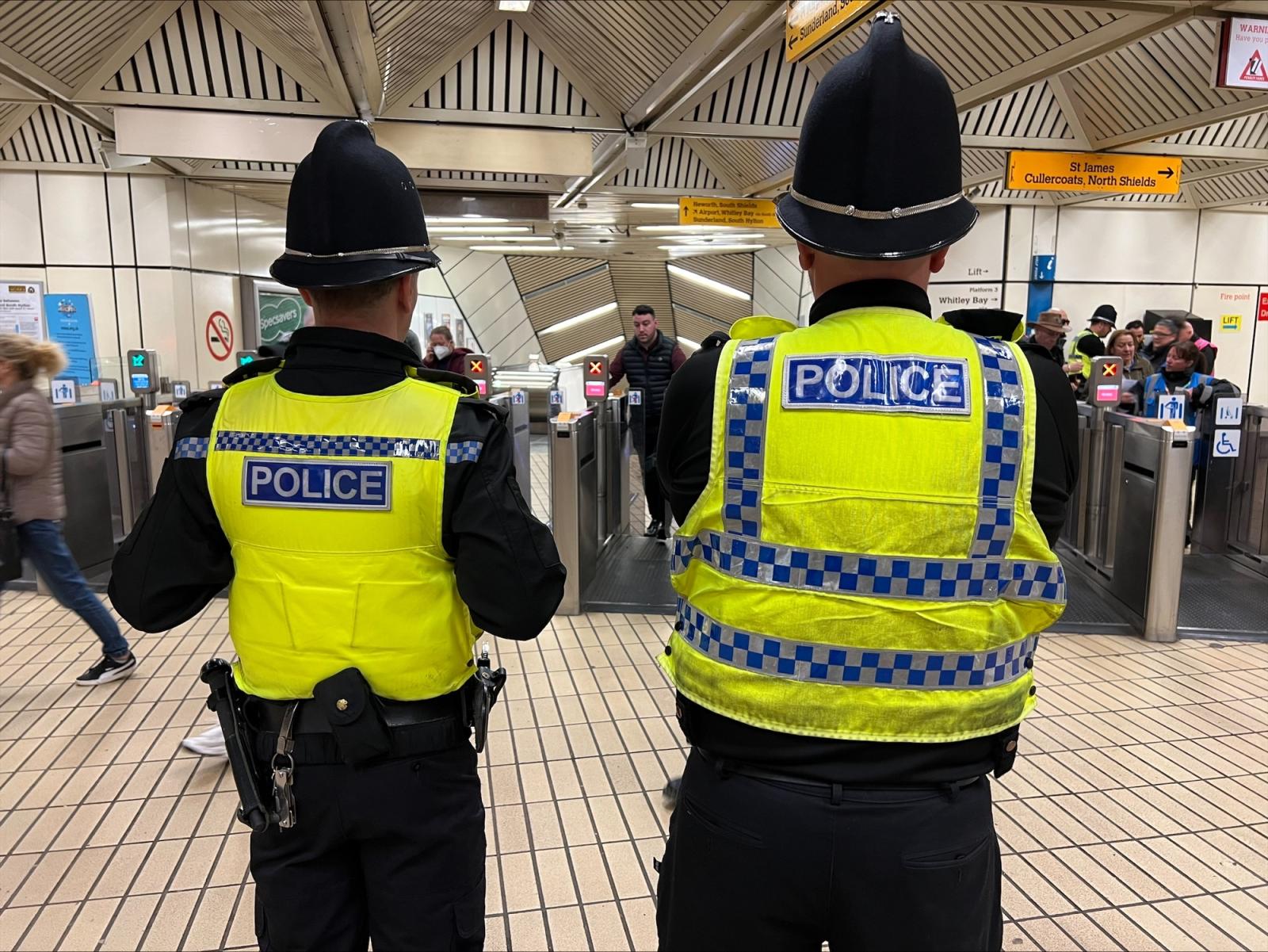Video games, rugby and graffiti – how novel approaches to anti-social behaviour are improving safety and security on transport

Anti-social behaviour more than doubled early in the coronavirus pandemic in England and Wales according to ONS data. This trend continued after restrictions were relaxed and people returned to using public transport.
Fearing, experiencing or seeing the effects of anti-social behaviour makes journeys unpleasant, deters people from using public transport and therefore presents a major issue to operators and local authorities.
Our buses, trains, trams and infrastructure should be safe spaces for all. Safety and security on public transport are essential if we are to grow patronage, enable the switch to sustainable public transport and unlock opportunities and connections for communities.
The transport industry, local authorities, the police and youth and charitable organisations are investing in and undertaking wide-ranging initiatives to improve the personal security of public transport passengers and staff. Our members are at the forefront of these efforts to tackle crime and anti-social behaviour on their public transport networks in innovative ways, such as through communications and in education.
In Greater Manchester, the GM TravelSafe Partnership (TSP) is working to promote a safe and secure public transport network. At the heart of their efforts is prevention and long-term behaviour change through active engagement and outreach. During the 2021-2022 academic year, the TSP engaged with a record number of over 50,505 young people across the Greater Manchester area.
Whilst it is difficult to directly quantify the benefits of this work, data suggests that when such outreach work wasn’t taking place across the lockdown period, youth-related anti-social behaviour on public transport doubled.
In a bid to address lower-level youth anti-social behaviour, the TSP have also joined forces with Foundation 92 (F92), who provide youth outreach, education and mentoring across the region. This new partnership is giving young people an opportunity to access engaging and meaningful activity with the aim of improving their behaviour and outcomes in the long term. Amongst the work of the TSP and F92 partnership, a mobile youth hub fitted with a TV and games console will be deployed at key locations across the public transport network to help engage with young people.
Transport for Wales (TfW) is also finding new ways to engage with young people to prevent crime, trespassing and antisocial behaviour on its network, including engaging young people in rugby and street art.
As Wales moved out of Covid restrictions in the Summer of 2021, the network was experiencing high levels of youth related anti-social behaviour. TfW began working with the local police force, the local authority, youth offending and youth engagement teams and social services on a multi-agency approach. Through this work they were able to identify the root causes of the behaviour and work with the other agencies to put the support mechanisms in place for the offenders to try and resolve the underlying complex issues.
Following this experience, TfW reached out to School of Hard Knocks (SOHK), a charity working with those groups most at risk of being excluded from school or of offending behaviour. SOHK combine rugby with behavioural psychology, seeking to address the issues that lead to disruptive behaviour. Working in partnership with the charity, good results in improving behaviour, confidence and relationships have been observed at a local school. This new partnership is now leading TfW’s approach to behaviour change and youth engagement.
More recently, a new community art project at Conwy Railway Station has also engaged local students to help reduce trespassing on the lines. Two new art pieces at the station were completed by local graffiti artist Andy Birch in collaboration with students from Ysgol Aberconwy. The project was developed to encourage a sense of ownership of the station in the local community and respond to recent trespassing incidents. Conwy station was a hotspot for anti-social behaviour last year and a decrease in the amount of trespass has already been noticed.

Finally, in North Tyneside a special anti-social behaviour operation is seeing major improvements on the ground.
Resulting in a 30% reduction of ASB in its first year, Operation Maple was launched in 2022 as a joint initiative between Northumbria Police, North Tyneside Council and Nexus. Following its initial success, the operation has been extended and is being rolled out for its second year.
Operation Maple sees uniformed and plain-clothed officers ride the Metro network for entire shifts to provide a visible a policing presence, offer reassurance to the public and swiftly deal with any pockets of disorder. The operation is supported by dedicated security officers from Nexus who provide a visible presence. It’s further bolstered by North Tyneside’s Community Protection Team who conduct regular patrols using CCTV vans – identifying any instances of disorder and offering support to officers. This dedicated operation runs alongside active engagement by police and operators with young people in the community to provide education and opportunities though school programmes.
From our members’ experience, it’s clear that education and engaging behaviour change activity is key in having a sustained impact on the levels and prevalence of anti-social behaviour. In the midst of a climate and cost of living emergency, it is more important than ever to ensure that everyone can feel comfortable in accessing the full range of affordable and sustainable transport options. Innovative initiatives such as those mentioned above not only ensure that passengers can safely and comfortably enjoy their journeys but undoubtedly have wider long term societal impacts in local communities.
Monta Drozdova is Policy and Research Advisor at the Urban Transport Group

